Despite the fact that I have been a longtime devotee of Parker Palmer and have read much of his work, when he published his book, Healing the Heart of Democracy: The Courage to Create a Politics Worthy of the Human Spirit in 2011, I was reluctant to read it. I still am not quite sure where this resistance came from since Parker has never let me down, but, like many, I am terribly weary of the ugliness of political discourse in our country and simply could not muster the energy to read anything more about politics.
Now that I have finally read the book, I realize that I should have known better than to think that Parker would write about American political life in any of the usual ways. Rather than prescribing any quick fixes to the ills of our political discourse, Healing the Heart of Democracy examines the trends in our society and the ways in which they have frayed the fabric of our community life — the health of which is necessary to a strong democracy.
The book has a discussion guide at the end, and the ideas presented have since spawned The Center for Courage and Renewal — providing resources and stories for citizens and leaders of all walks who wish to engage in a new kind of political discourse.
One of the reasons that RealSmallTowns is committed to focusing on small communities is because the size distills both the triumphs and the challenges faced by all human beings in relationship —in relationship with each other and with our environments. The considerations of community is part of the CCR mission as well: “As we do “inner work,” we are not simply focusing inwardly on ourselves. Rather, we become more aware of the fabric of our connectedness with others in our families, workplaces, and communities. This results in an ongoing sense of responsibility and stewardship of the people and concerns that most matter to us.” Keeping this in mind, it becomes clear that the seeds of the challenges we face in our democracy begin with our relationships with each other and our ties to our communities. Highlighting and exploring these connections is a fundamental part of the ReallSmallTowns mission.
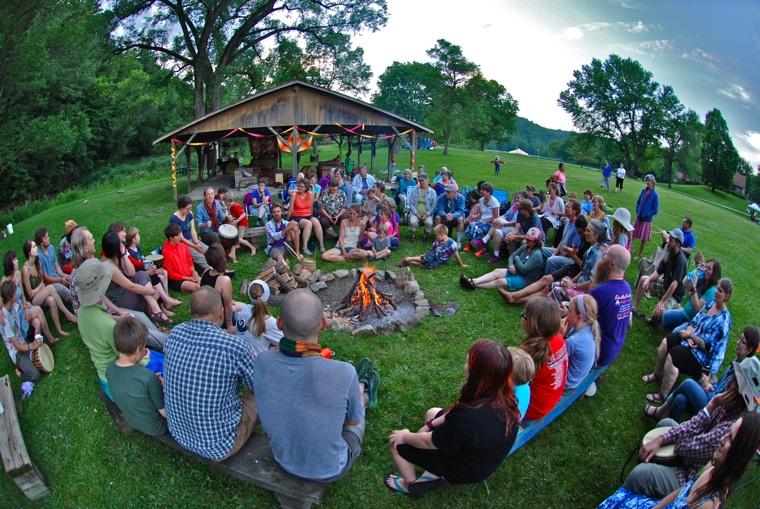
Photo by Leo Shonka
In that vein, I am wondering if other RealSmallTownies would be interested in joining me in a reflection/ discussion about our lives in community, using the discussion points raised in Healing the Heart of Democracy/The Center for Courage and Renewal as a launch pad? The first question begins with the dedication to the book:
“ In memory of:
Christina Taylor Green (2001-2011)
Addie Mae Collins (1949-1963)
Denise McNair (1951-1963)
Carole Robertson (1949-1963)
Cynthia Wesley (1949-1963)
I dedicated the book to five young girls who died way too young. Four of them were murdered in 1963 in a Ku Klux Klan bombing…[The fifth] died in a shooting out in Arizona. [These tragic deaths] remind me that a nation is not judged by how well the strongest in its midst can do but by how well it cares for the weakest and most vulnerable in its midst.”
How do you respond to the book’s dedication and to what Parker says about the standard by which a nation should be judged? Do you agree that this is a good standard by which to measure ourselves? Are there examples in your community of caring for “the weakest and most vulnerable”? Are there ideas you have that could help strengthen the safety net in your community to further support its most vulnerable members?
Please weigh in with your thoughts and ideas about the ways in which we can support the most vulnerable among us.

Photo Credit: Drew Shonka Photography
The Center for Courage and Renewal
Our mission
….is to create a more just, compassionate and healthy world by nurturing personal and professional integrity and the courage to act on it. Distrust, stress, isolation, and burnout are robbing society of what’s possible when people bring integrity and humanity to the places where they live and work.
Our Core Values
Integrity:
Living and working with integrity requires us to develop greater congruence between our inner and outer selves, to live less divided lives. To move towards such wholeness we must become more self-aware and accepting of our gifts and strengths as well as our shadows and limits.
Authenticity:
When we “show up” as whole people and act authentically, those with whom we live and work are more willing to trust us in relationship and leadership. This can lead to transformed workplaces and organizations.
Diversity:
Diversity is a deeply valued source of strength, richness and wisdom for us and for the communities in which we live and work. The capacity to welcome and make space for diverse voices and multiple perspectives is critical to the creation of circles of trust, and to the healing and wholeness needed in our world.
Community:
As we do “inner work,” we are not simply focusing inwardly on ourselves. Rather, we become more aware of the fabric of our connectedness with others in our families, workplaces, and communities. This results in an ongoing sense of responsibility and stewardship of the people and concerns that most matter to us.
Courage:
For people whose vocation is serving others, courage is needed to persevere and be “whole-hearted” in the often overwhelming circumstances in which we are trying to make a difference—whether that be in the life of child, patient, congregation or community.
Love:
Our work is grounded in love, by which we mean the capacity to extend ourselves for the sake of another person’s growth. Our work in community stretches us to understand, respect, and support each other, teaching us why learning to love is one of the most demanding disciplines we can choose.
Hope:
Hope is believing and acting on our finest and most dearly held dreams, persisting even when the odds are against them. In the midst of the despair and broken-heartedness experienced by so many in our world today, our work engenders hope for people to live purposeful lives, do meaningful work, and make contributions to succeeding generations.
Renewal:
Just as we experience nature’s cycle of renewal through the seasons, so we experience natural cycles of engagement and withdrawal, love and loss, creativity and despair in our personal lives and work. When we take time to slow down, quiet ourselves and reflect, to renew ourselves and recall our commitments, important changes can happen within us and around us. As we are renewed, we in turn can contribute to the renewal of our professions, workplaces, and communities.

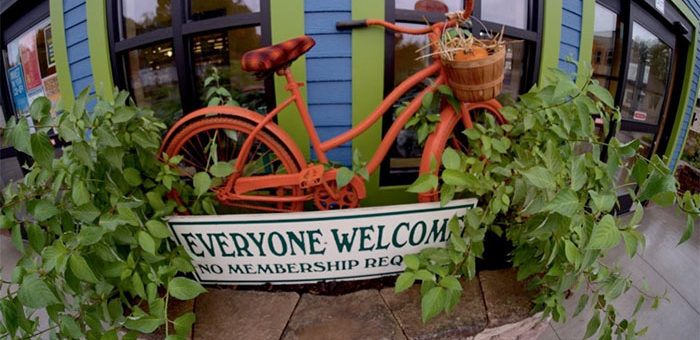

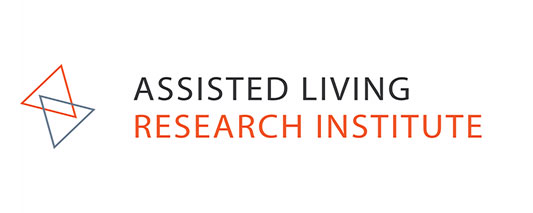

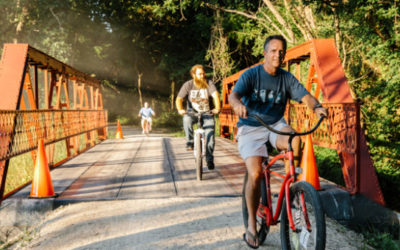
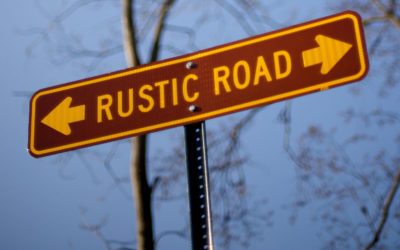
Good topic, Sheila, and timely. Specifically, the dedication reminds me that we should never forget our history – starting with slavery, of course, and genocide. I’m not that old but I remember traveling in the south and being shocked by the apartheid. So, first point: never forget our history. Second point: don’t just dwell on the negative; remember that we are a versatile and talented people and we can make positive change. The trick is to balance points one and two.
Thanks for starting this discussion.
Thanks for your thoughts, Charlie. I agree that focusing on the recognition that WE have the opportunity make changes —big and small— is important. And when we balance our capacity for action with an awareness that history —both personal and systemic— is not always visible, but is always present and influencing, our action can be (as it should be) informed by empathy and compassion.
I can get the discussion going with this:
On the spiritual plane, I think we start caring for others by tending to our inner lives — doing our best to stay humble and committing to deep listening with the recognition that we all have personal histories that may not be visible others but nonetheless influence the ways in which we interact with the world around us. Things like organizational consensus-building and public storytelling can help strengthen the fabric of connection.